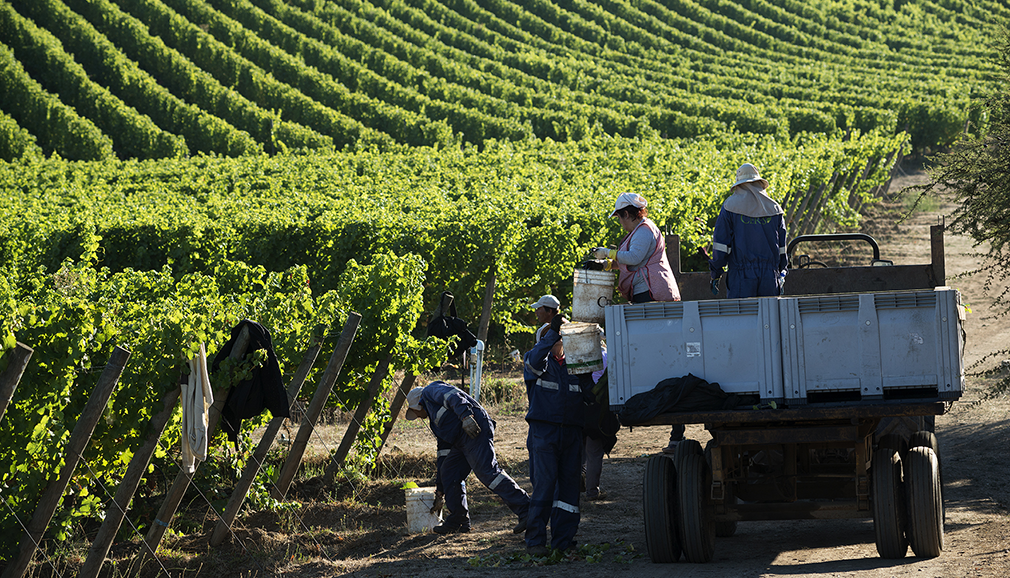
Essential information

Large Chinese companies continue to show interest in Chilean agribusiness

The food industry has positioned itself as one of the sectors of the Chilean economy that most interests Chinese investors. Last week, Yanghe, a subsidiary of state-owned Jiangsu Yanghe Distillery Co. Ltd., surprised the local market by acquiring 12.5% of Viña San Pedro Tarapacá, controlled by Chile’s CCU, for US$66 million.
This exceeds the investment of almost US$50 million made in 2017 by another Chinese company, Yantai Changyu, to acquire 85% of Chilean wine group Bethwines.
The director of InvestChile, Carlos Álvarez, described Yanghe’s investment as “great news because it is a sign of China’s interest in investing in Chile”. In an interview in the Diario Financiero newspaper, Álvarez explained that Chinese companies are repeating the investment formula applied in large European economies and the United States in recent years “through processes of acquisitions in serious and consolidated companies”. He added that “the fact they are entering the country through acquisitions means that they differentiate Chile from the rest of the region and I think transactions like this will continue to happen.”
Large Chinese investments in the sector are not new. One of the principal operations took place in 2010 when Chinese food giant Cofco paid US$18 million for part of the assets of Viña Bisquertt, including a plant and 350 hectares of vineyard in Colchagua.
In 2013, Joyvio, the agricultural branch of Lenovo, formed a strategic association with the Subsole fruit exporter in order to increase its capacity to distribute fruit in China.
Hortifrut, Chile’s largest berry producer, has also turned its attention to China, creating a joint venture, JVCo, in continental China with Joy Wing Mau, the country’s leading fruit producer and distributor.
Deepening relations
In 2017, a decade after the Free Trade Agreement (FTA) between Chile and China came into force, President Michelle Bachelet and China’s Xi Jinping agreed to begin talks with a view to deepening the agreement.
Since the signing of the FTA, bilateral trade between Chile and China, which reached US$31,474 million in 2016, has been growing at an average annual rate of 16%, accounting for 26% of Chile’s overseas trade and positioning China as its largest trading partner. Chile’s exports to China in 2016 totaled US$17,293 million while its imports from China reached US$14,181 million.
Good trading relations have, however, not necessarily been reflected in Chinese investment in Chile.
“It is key for Chile’s development that we make greater efforts to deepen the excellent relations we have with our principal trading partner. Having a specialized presence for attracting investment from China will allow us to strengthen our matrix of investors,” indicated the director of InvestChile last August when announcing that, in 2018, the Agency would be opening its first Investment Promotion Office in China.
At present, InvestChile is providing support for 11 projects that are at different stages of implementation by Chinese companies. Together, they represent a potential investment of some US$1,500 million. The Agency also has personnel able to attend these investors in their own language.
Source: Emol, DIRECON, Radio Agricultura, Diario Financiero







